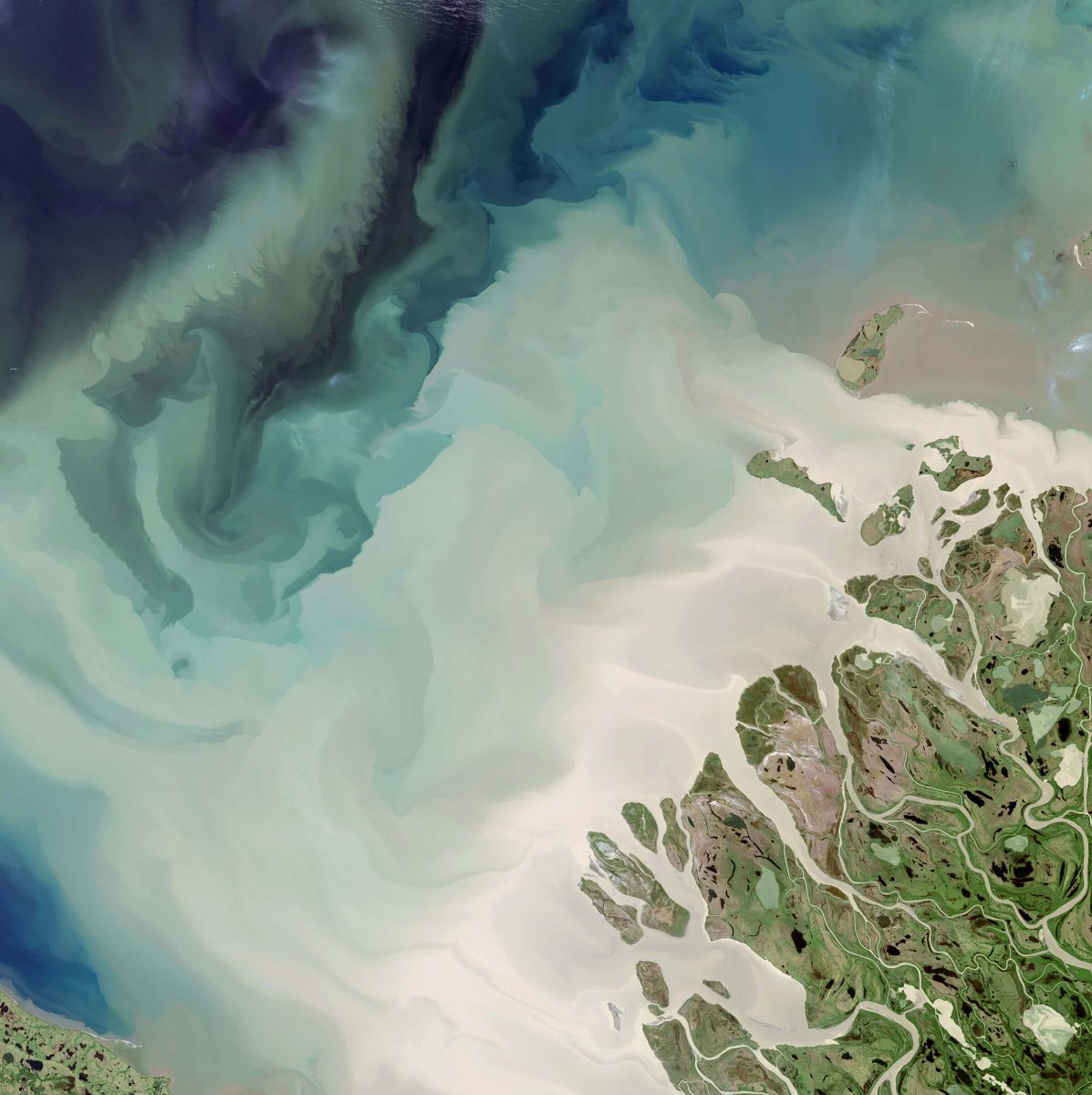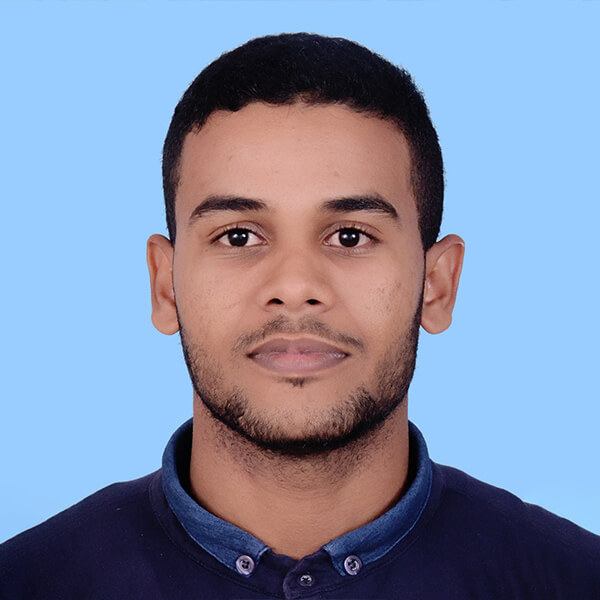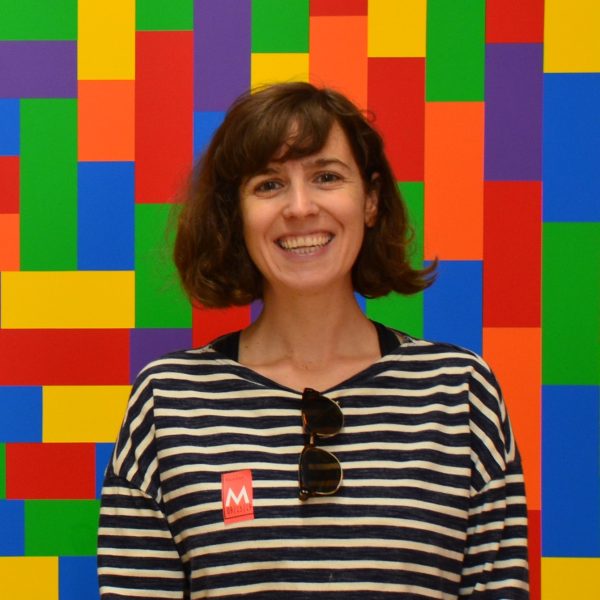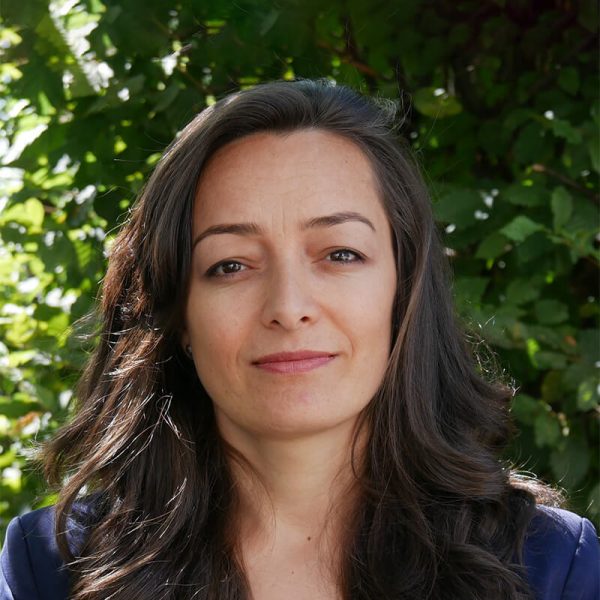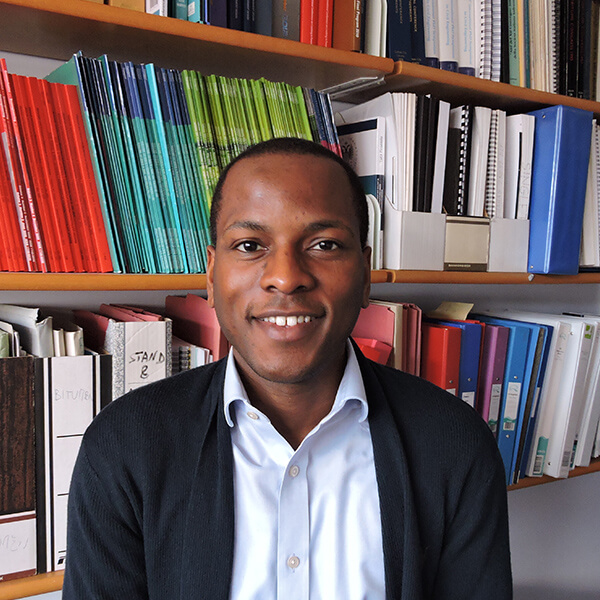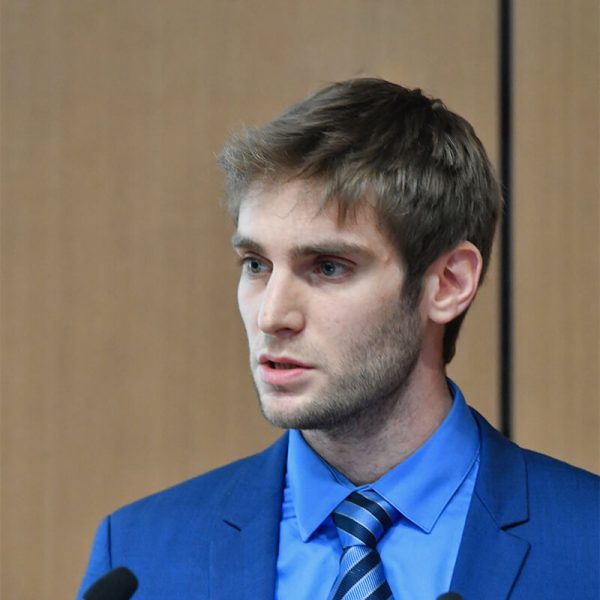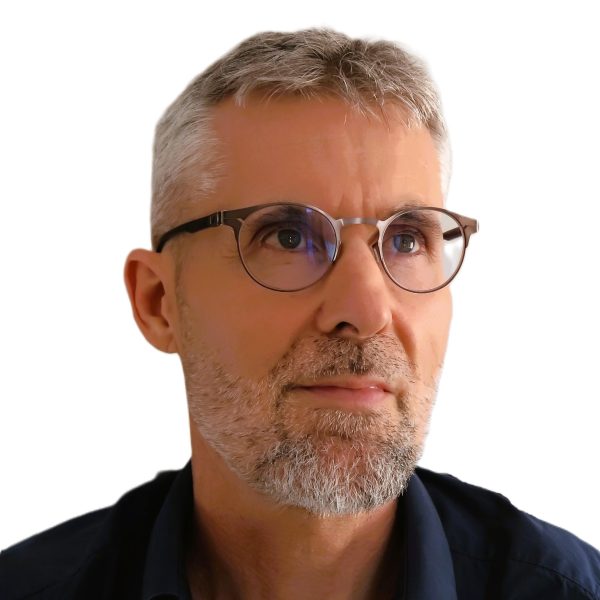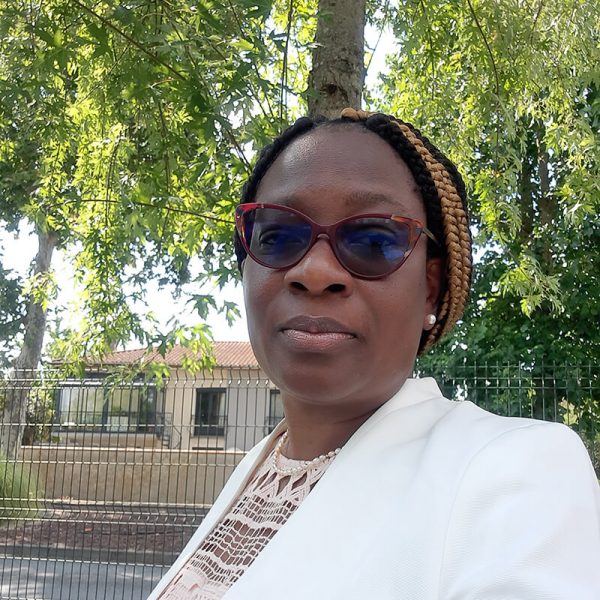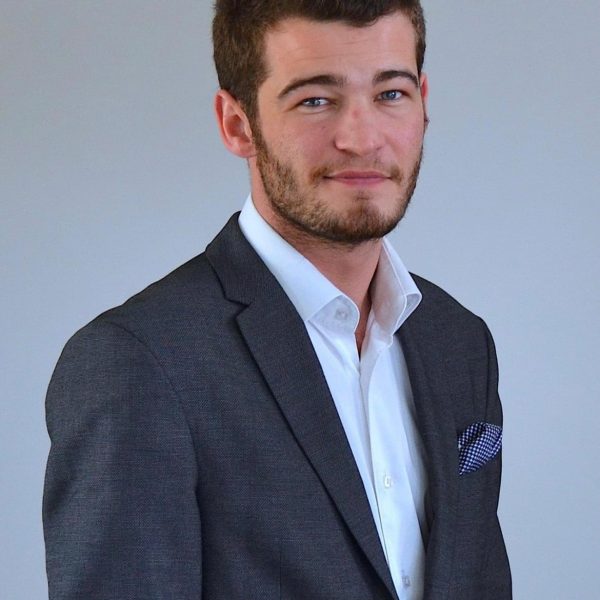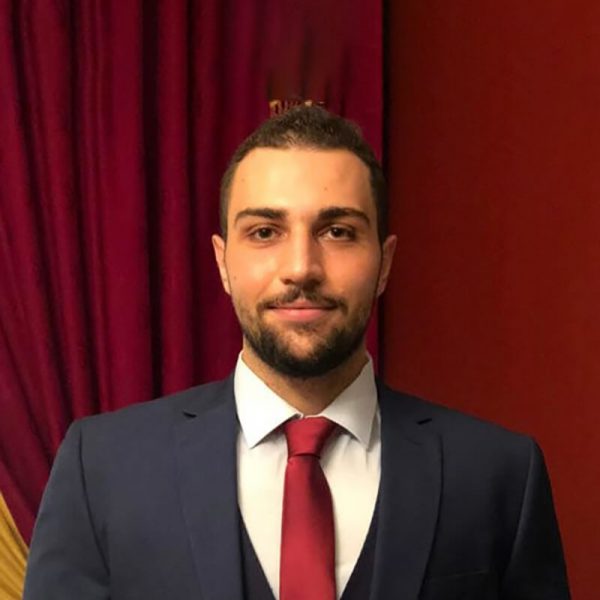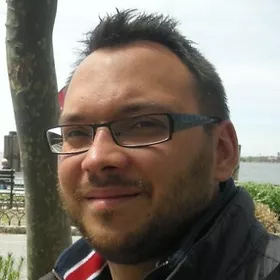Resallience’s team
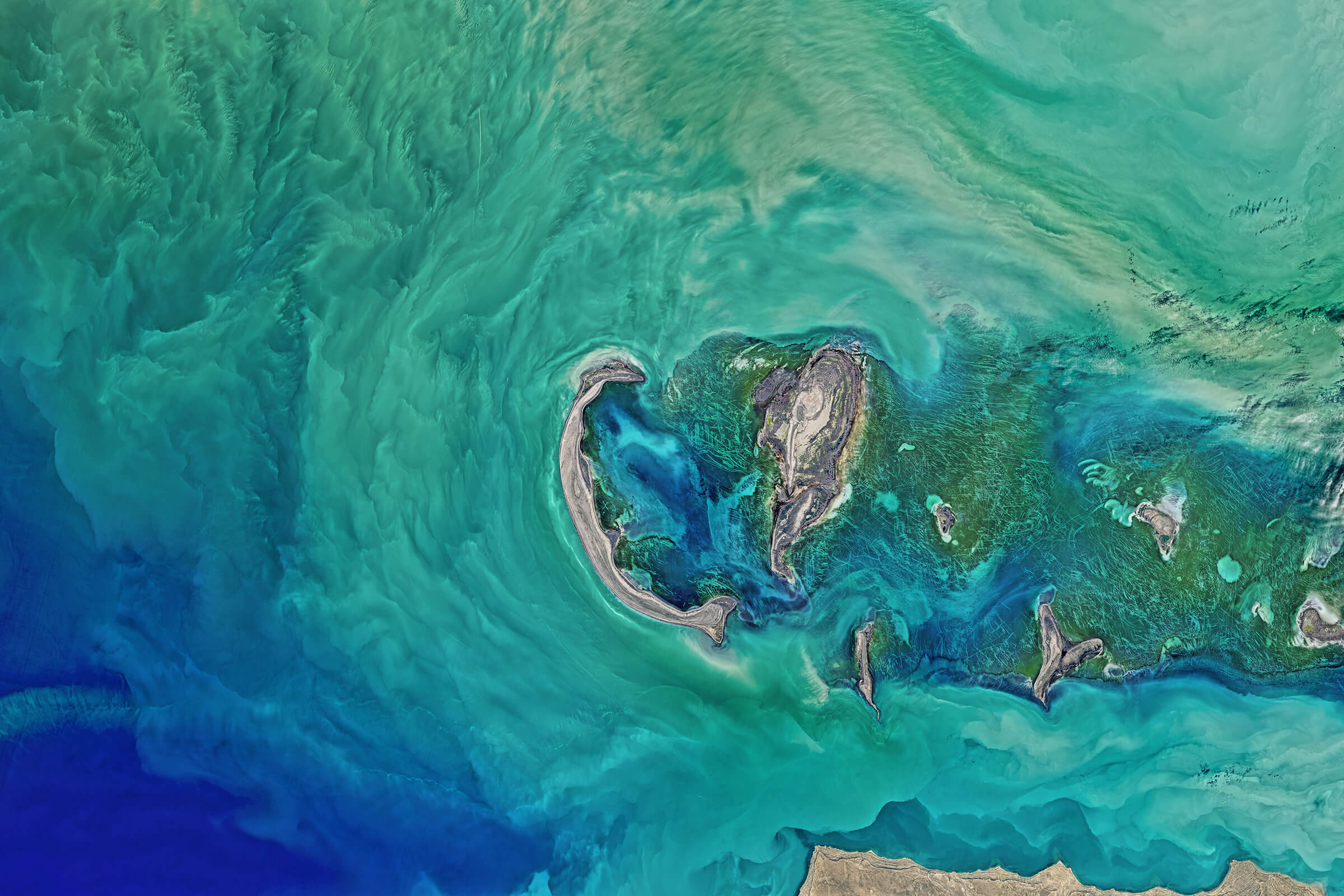
An international team to support you
Our international and multidisciplinary team is dedicated to solving problems caused by climate change. Our mission is to use our expertise to help you conceive and implement the best resilience and adaptation strategy.
Researchers, academics, engineers, architects, economists, PhDs… Learn more about our team of collaborators and their profiles.
Mohamed OUABOU
Project manager – Remote Sensing, GIS, Hydrology and flood modeling
Mohamed OUABOU joined RESALLIANCE team at the beginning of August 2022 as a Geomatics Specialist-Project Manager.
Mohamed followed a multidisciplinary academic path oriented to geomatics and hydrology. He has a Water Management and Control specialized technician’s diploma, a bachelor’s degree in Water Management and Urban Planning, a master’s degree in Space Science and Technologies and a master’s degree in Geomatics sciences applied to environment and land planning from the Jean Jaurès University of Toulouse.
This academic path allowed him to acquire knowledge and skills in the fields of GIS, remote sensing, hydraulics, hydrology, and land planning, with particular attention to hydrological changes, notably floods.
During his university studies, Mohamed had the opportunity to work on flood and inundation as part of his various professional experiences (internships and work). In addition to his internships, he gained about 1 year of experience as a Geomatician and Design Engineer in the field of stormwater management and flood. His last missions were as follows: Participation in development of Stormwater Management Master Plans, flood risks vulnerability assessment, French water legislation dossier.
Émilie EDELBLUTTE
Project manager and head of Innovation
Émilie EDELBLUTTE joined RESALLIENCE in 2023 as a project manager and head of Innovation. As an environmental geographer and social scientist within RESALLIENCE, she brings her expertise in biodiversity conservation, wildlife management, and political science along with technical skills in the fields of GIS, remote sensing, conservation planning, and coding.
She graduated with a degree in Geography and Cartography from Nantes University (France) and obtained her M.A. in Geography, with a specialization in human-environment relations from Lyon 2 University (France). She further received a PhD in Geography within the Earth and Environment Department of Boston University (USA) with a thesis on the political dimensions of wildlife conservation and management decision-making in northeastern US and western India.
Émilie has over 8 years of professional and academic experience in France, the United States, and India. Her work strives to help protect biodiversity at multiple scales and enhance the resilience of socio-ecological systems to climate change, especially in urban and peri-urban regions. She has worked on assessing community vulnerabilities to flood risk in Mumbai, predicting puma’s occupancy in California, mapping the urbanization process of the Mumbai Metropolitan Region, and analyzing environmental decision-making processes toward wildlife in northeastern US.
Julie PRUD’HOMME
Project Manager – Air quality, GeoData analyst
Julie got her Ph.D in geography from the University of Avignon– UMR CNRS ESPACE 7300. Her thesis focused on the evaluation of pollutant emissions produced by automobile traffic in the specific conditions of Demand Responsive Transport. This questioning led her to adapt and program a European model for calculating emissions from vehicles and to reflect on the impact of the shape of the road network on the quantities of emissions produced and their location.
Julie applied her geospatial analysis skills to various issues related to urban air pollution linked to car traffic. She studied the relation between urban growth and air quality modelling within a multidisciplinary team of atmospheric chemists and economists. She also conducted research focusing on measuring individual air polluation exposure and the related health impacts with public health researchers from INSERM.
Camille VIGNOTE
Climate Resilience & GIS project manager
Camille VIGNOTE joined RESALLIENCE in 2019 as a climate resilience & GIS project leader. Within RESALLIENCE, she is in charge of vulnerability assessment to climate change, mapping risks using weather and climate data, and advising on climate-resilient solutions.
Thanks to her abilities in project management, vulnerability assessment, GIS and land-use planning for natural hazards, she joined in 2017 the VINCI Concessions Sustainable Development Department. She conducted a climate risk mapping on VINCI’s international concessions. In March 2018, she integrated LEONARD, the open laboratory for the future of cities and infrastructure. She oversaw the coordination of resilience foresight actions through a transversal and a long-term approach. During her mission, she also analyzed the impacts and opportunities related to climate change that could affect the VINCI Group. She had also participated in the organization of the 13th Géorisque conference on post-disaster feedback in Montpellier in 2017.
Since 2019, she has joined the RESALLIENCE design office as a climate resilience & GIS project manager. She oversees vulnerability assessment to climate hazards at the level of territories, cities, infrastructures or even buildings. Within this framework, she has also created indicators of vulnerability and resilience to climate change, as well as cartographic renderings through the deployment of atlases and platforms for monitoring climate impacts on different cartographic scales: global and territorial.
Camille is a geographer from Montpellier 3 University. She has a master’s degree in natural disaster management and a specialization in adaptation to climate change. Her research paper was on “The vulnerability of airport and highway infrastructure to climate change regarding operation and construction”. She also undertook studies on “The vulnerability of existing buildings to seismic hazard in Istanbul” and a “Damage assessment of the 2013 floods in “la Vallée des Gaves” (France) for the Syndicat Mixte du Pays de Lourdes et des Vallées des Gaves” during her academic research.
Titouan BLOND
Chargé d’affaire
Matthieu DUTEL
CIFRE PhD Student
Matthieu is an engineer from IMT Mines Albi. He has developed his data science skills during his studies. Also, he has studied entrepreneurship. He went in San Francisco to improve his knowledge about Deep Learning. He started in 2023 a CIFRE PhD at Resallience, in partnership with CentraleSupélec. During his PhD, he will study climate vulnerability and exposure of assets to climate change and related hazards models.
Bunafsha MISLIMSHOEVA, PhD
Head of International Projects Development | Nature-based Solution
Bunafsha Mislimshoeva graduated with a degree in Ecology from Khorog State University in Tajikistan and obtained her MSc in Global Change Ecology at the University of Bayreuth. She further received a PhD within the Ecology and Environmental Graduate Program with a thesis on the “Forest ecosystem services governance, supply and demand in Tajikistan”.
Bunafsha has over 14 years of very strong practical and scientific experience out of which over 9 years she worked with development cooperation and banks. She has very strong experience in Nature-based Solutions, climate change adaptation and mitigation, and sustainable natural resource management governance. She has proven skills in awareness raising and capacity building.
Along her technical inputs, Bunafsha has managed numerous projects in the past 6+ years. This includes project acquisition, project planning and implementation, team management and reporting for different clients.
She was born and grew up in Tajikistan, and speaks fluently – Tajik, Russian, English and German in addition to her mother tongue – Shugni.
Philippe SOHOUENOU, PhD
Project leader / Head of the Transport & Urban Mobility unit
Philippe is a project manager at RESALLIENCE since January 2021, where he develops and manages international projects related to the resilience of transport infrastructures and territories to climate hazards (floods, heatwaves, landslides, etc.). He has six years of experience developing modelling techniques to help transport operators and public authorities predict and optimise the design, maintenance and operation of their infrastructures.
Philippe graduated with master’s degrees in Civil Engineering from ESTP Paris (France) and the University of Nottingham (UK). He pursued his PhD at the University of Nottingham (UK), where he developed novel and robust methods to support decision-makers in predicting, assessing, and ultimately reducing the impact of disruptive events on transport networks. As part of his PhD, Philippe contributed and benefited from the research and innovation programme SMARTI (Sustainable Multi-functional Automated Resilient Transport Infrastructures), which was an EU-funded collaboration between over 30 universities, research institutes, and engineering companies worldwide.
Philippe was a contributor to the Project Group on Resilience Engineering and Modelling of Networked Infrastructure of the European Safety, Reliability & Data Association (2018-2021). He notably interned at VINCI as an assistant project engineer (2015) on tram construction projects and worked on asset management projects for SNCF (the owner and manager of the rail infrastructure in France) as a civil engineer (2017).
Nicolas ZIV, PhD
External Consultant
Nicolas ZIV, is an Engineer and an Urban Planner, he has a PhD from Université Paris-Est and Ecole Spéciale des Travaux Publics. He has more than 6 years of experience in the transport infrastructure domain and academic research. His Phd concerns the adaptation of methods from other industries, like Systems Engineering, to the construction sector to better manage complexity of large infrastructure projects.
Nicolas also has a field experience at different stages of development of a transport infrastructure, in France and at the international level: from the planning stage (metro network of Madina in Saudi-Arabia, extension of the metro line B of Lyon, France), in design (line 16 of the Greater Paris project), and also in construction (line 3 phase 3 of the Cairo metro). In combination with its urban planning and engineering studies, it gives him a comprehensive understanding of the challenges to develop transport infrastructures at different scales.
Simultaneously, Nicolas was involved in very diversified innovative subjects, he developed a new concept of multifunctional metro infrastructure during his PhD, which allows answering several technical city needs with a unique solution: not only transport people but also energy, information, materials, goods, sewage or water and many mode depending on the specific needs of each project. He was also part of a working group in MINnD, a national research group, for the use of Systems Engineering to structure digital mockups of infrastructures. Finally, he also developed machine learning algorithms to improve the productivity of Tunnel Boring Machines, or set-up new sensors to improve their steering.
Frédéric DELAFOSSE
Director RESALLIENCE c/o Sixense Engineering
Frédéric takes the helm of RESALLIENCE in 2024, following an initial transition mission as performance director.
An engineer by training in acoustics and thermal engineering with a specialization in aerodynamics, he began a PhD project and engineering services at CNRS, before joining various study and work structures in the field of sound environment management. He notably developed methods for assessing the impact of industrial and energy installations and already implemented a quality management approach. He joined the Vinci group in 2009 and then took charge of a first Business Unit offering consulting and monitoring in noise, vibrations, and air quality. From 2013, he developed the activity internationally (JV in the UK) in collaboration with SIXENSE MONITORING.
Passionate about management and the pursuit of overall performance, he simultaneously took charge of a second business unit in geophysics to turn around the activity and thus experience the role of transition manager. From 2019 to 2023, he carried out several restructuring missions as executive interim manager in various independent consulting firms.
However, the desire to give meaning to the profession and expertise took over, and when SIXENSE ENGINEERING was looking for a director-manager to support the development of its activity in adaptation to climate change, he rejoined the VINCI group to put his energy into this tremendous project.
Nathan RUECHE
Resilience and Public Policy Project Manager
Nathan holds an MSc in Law, Economics, and Management from Paris XI University and an MSc in Climate Change: Environment, Science and Policy from King’s College London. During the completion of his last degree, he joined Global Canopy for an internship as a Geospatial Data Analyst, working on the exposure of commodities to deforestation and greenhouse gas emissions in South America. He also contributed to the production of the United Nations Framework Convention on Climate Change (UNFCCC) “Global Youth Statement on Climate Change” 2021 report, presented at COP26.
Nathan worked for one year at the Organisation for Economic Co-operation and Development (OECD) and specialised in climate change adaptation through both a policy and scientific pathway. As part of this experience, he contributed to several projects in developed and developing countries, such as in OECD countries as well as in the Pacific, Caribbean, and Atlantic, Indian Ocean, and South China Sea (AIS) regions.
His recent work focused on climate change adaptation measurement, multi-level governance and adaptation policy at sub-national levels in OECD countries as well as capacity development for climate change adaptation and development co-operation in Small Islands Developing States. Nathan also engaged in geospatial data analyses with a mapping of climate change vulnerability and losses and damages in SIDS as well as statistical analyses on the relationship between Official Development Assistance (ODA) flows and climate change vulnerability in developing countries.
Naji EL BEYROUTHY
Project Manager – Earth Observation, Remote Sensing and GEE
Naji EL BEYROUTHY joined RESALLIENCE in Jan 2023 as Project Manager. His missions are in the field of remote sensing, agriculture, climate modelling, and environmental impact studies including nature-based adaptation solutions.
After graduating from the American University of Beirut with a BS in Agriculture Engineering and Master’s degree in Irrigation where he proved in his thesis the effect of climate change on snow accumulation, density and extent, Naji started working in the field of climate change adaptation in agriculture developing and releasing an app that helps farmers predict and project their irrigation needs. He has more than six years’ experience in remote sensing, climate change adaptation and GIS. In addition, he gained an experience in the field of Nature-based Solutions and Nature-based adaptation Solutions. After he finished his post as research assistant, he worked at Agriwa as a project manager. His work covered the fields of agriculture and remote sensing where he designed, built and initiated the first fully automated vertical tower aeroponic system in Lebanon. This system integrated both remote sensing and in situ reading to automate the planting, irrigation and harvesting of the product. His missions throughout his career were: geospatial analysis and mapping, climate modelling, agriculture and irrigation modelling, multi-scale assessments of ecosystem services.
Abla Mimi EDJOSSAN, PhD
Chief Technical Officer
Graduated with a PhD in the field of Mechanics – Civil Engineering at Université de Lorraine after a thesis on the development of a decision- support methodology for a sustainable management of natural hazard risk under uncertainty, Abla has also a Master Degree in development and an Agricultural Engineer Diploma.
She has over 20 years of professional experience including more than ten years in the field of research and development for supporting decision-making when tackling complex environmental management concerns, mainly in France but also with worldwide working experience (Europe and Africa). She also has several years of experience in consulting and academia with responsibilities covering project management and teaching.
Abla provides her proven expertise in risk and crisis management as well as in urban resilience matters including hazard exposure, territorial vulnerability and cascading effects impacting infrastructures and surrounding territories analysis.
Thomas SELEGNY
Resilience and Public Policy Project Manager
Thomas joined RESALLIENCE in September 2023 with several missions: organize the knowledge management, join the crises management center and conduct projects having components in terms of social sciences and geopolitical impacts. He has a good understanding of the United Nations system, some of the most important development agencies around the world, e.g. USAID, AMCI, and the decision-making system of French Government agencies.
After a BA in history and geography, with the third year spent in Beirut, Lebanon, Thomas started a master’s degree in modern Middle Eastern Studies at Leiden University, Netherlands. As part of this multidisciplinary program, he focused on social sciences and conducted a research work on the seaport city of Suez, Egypt during the 2011 revolution. After graduating, Thomas joined another MA in Geopolitics, Territory and Security at the Department of Geography of King’s College London. He studied world issues related to sovereignty, borders, power struggles between States, development, socioeconomics and geoeconomics, as well as the exploitation of natural resources in highly politically sensitive and fragile environments. Through his master’s thesis, he analyzed the caviar illicit trade in the Caspian-Volga Basin as a geopolitical crime on wildlife involving transnational criminal organizations.
He started his career at the International organization for Migration (IOM) in Niger as program officer within a PVE program, funded by the Office for Transition Initiatives (OTI). Based in Niamey, he undertook monthly trips in the Agadez region. Afterwards, still within IOM, he moved to Chad in N’Jamena as project manager of a cross-border transhumance project between Chad and Central African Republic involving several United Nations agencies, e.g. FAO, WFP, and government entities, i.e. ministries of Interior, Agriculture, Livestock. Back in France, he worked for more than 2 years for the French Ministry of Justice with a focus on the issue of the French children repatriation from the once-ISIL ruled territories in Syria and Iraq. Then, he worked as program coordinator of Project Aladdin, i.e. a NGO official partner of the UNESCO and the UNAOC. He successfully implemented high-level projects in Morocco, Turkey and Bahrain, involving multiple stakeholders, while negotiating new partnerships with world-renowned institutions.
Mario J. ALSAYAH, PhD
Head of the Earth Observation Unit. Project Leader: Land Degradation, GIS and Nature-Based Solutions
Mario joined RESALLIENCE in April 2022 as Project Manager. His missions are in the field of remote sensing, climate modelling, and environmental impact studies including land degradation and nature-based adaptation solutions. He is in charge of conducting studies and managing international projects, in addition to field investigations and the production of reports and scientific publications.
After graduating with a Master’s 2 degree in Environmental Geosciences option GIS and remote sensing from the Lebanese University, Mario obtained a joint doctorate in land management, environmental sciences and geography from the University of Orléans, France, the Lebanese University, and the National Council for Scientific Research, Remote Sensing Center of Lebanon. His thesis received the 2018 Scientific Excellence Award from the Lebanese University and is ranked among the top 5% in the University of Orléans. He has more than seven years’ experience in remote sensing, land degradation and GIS. In addition, he gained an experience in the field of Nature-based Solutions and Nature-based adaptation Solutions (NbS-NbaS). After his graduation, he worked at the Ecole Nationale des Ponts et Chaussées as a postdoctoral researcher. His work covered a wide range of scales, and focused on concepts issued from international and European agendas, such as Land Degradation Neutrality (LDN), NbS under international frameworks, the Horizon 2020 program and at the French national level, as well as the SDGs agenda. His missions were: geospatial analysis and mapping, climate modelling, soil loss and land degradation modelling, multi-scale assessments of NbS-ecosystem services (from buildings to regions) and the development of educational training modules for various target audiences.
Alejandra CASTELLANOS, PhD
Project Manager – Resilience, urban heat islands and nature-based solutions
Alejandra CASTELLANOS joined RESALLIENCE team in July 2022 as Resilience Research Officer.
Alejandra graduated in Environmental Engineering from Universidad Pedagogica y Tecnologica de Colombia, Colombia. She did a Master 1 in Territorial Management and Local Development – Territory, Risk and Environmental Governance Option, at the University of Paris Saclay, and a Master 2 in Environmental Sciences and Engineering – Option: Systems Aquatics and Water Management, at Paris-Est Créteil University.
Alejandra gained 3 years of experience during her PhD at Ecole des Ponts ParisTech (France). Her thesis focused on the deployment of nature-based solutions (NbS) for the mitigation of Urban Heat Island (UHI) effect and more specifically air temperatures. During this thesis, Alejandra analysed the thermal performance of a green roof by the measurements of the evapotranspiration flux, the variability of the flux through scales, and the feasibility of integration of NbS at different urban scales. Alejandra also has experience in the management and treatment of water and waste, and also in air pollution.
Alejandra will be in charge of projects dedicated to Nature-Based Solutions, UHI and air quality as well as the development of activities in Latin America.
Didier SOTO, PhD
Resilience and GIS project leader
Didier SOTO joined RESALLIENCE in 2019 as a resilience and GIS project leader. Didier is a geographer and a climatologist. He is Doctor of the University Jean Moulin Lyon 3 in geography and land-use planning. His PhD thesis dealt with the analysis of past climate changes. Didier worked for five years at the University of Lyon and at the French National Research Centre on geomatic tools and methods to assess territorial vulnerability and measure territorial well-being.
Within RESALLIENCE, Didier leads the vulnerability assessment of infrastructures and territories to climatic hazards, the development of digital platforms dedicated to the monitoring of climatic hazards and the infrastructure resilience performance. He also supervises modelling activities of heat islands and their sanitary and socio-economic impacts.
Didier has co-piloted several RESALLIENCE national and international missions for international funders (UNDP, IFC-World Bank), infrastructure operators (COFIROUTE, EUROVIA, VINCI Airports), real estate developers (STATIONORD, VINCI Immobilier), property managers (CDC-Habitat), municipalities and public establishments (Bordeaux Métropole, French Environment Agency) and industrial owners (ORANO). Didier took part to fields missions in Togo, Liberia and Kazakhstan.

A line up of experts to face climate change
At Resallience, we value diversity.
First of all, cultural diversity.
Our team is composed of personalities, which are distinguished by their gender, their origins and their background.
This cultural diversity is truly of value when working with international clients.
We are capable of understanding their concerns, expectations, and need. Regardless of their challenges, we assist them on the technical, cultural, and socio-economic fronts, whatever their geographic location.
We are proud to have a dynamic, young, and inclusive team.
All our team members are very committed to the green transition in the context of climate change. They show great determination to meet the challenges of global crises.
Secondly, diversity within our technical expertise.
At Resallience, we have a systemic approach of both present and future risks and challenges. Thanks to our inclusive conception of climate issues, we offer technical and financial solutions to respond to our clients’ needs and help them adapt efficiently.
This approach is made possible by the diversity of the technical profiles within our team. Each staff member has established track record in their field.
This multidisciplinarity adds to the synergy between professions:
- Planning,
- Urban planning,
- Construction,
- Civil engineering,
- Engineering,
- Resilience,
- Climate science,
- Environment,
- Biodiversity,
- Geomatics,
- AI.
This mix of techniques and cultures has allowed us to become one of the world leaders in supporting climate change adaptation.
You have a project? Let's talk about it!
Do you need help in understanding the impacts of climate change on your project? Would you like to find solutions to increase the resilience of your area or assets to climate change? Do you want to make climate-informed investments?
Feel free to tell us more your needs. Our experts will know how to help and advice you in the course of your project.
